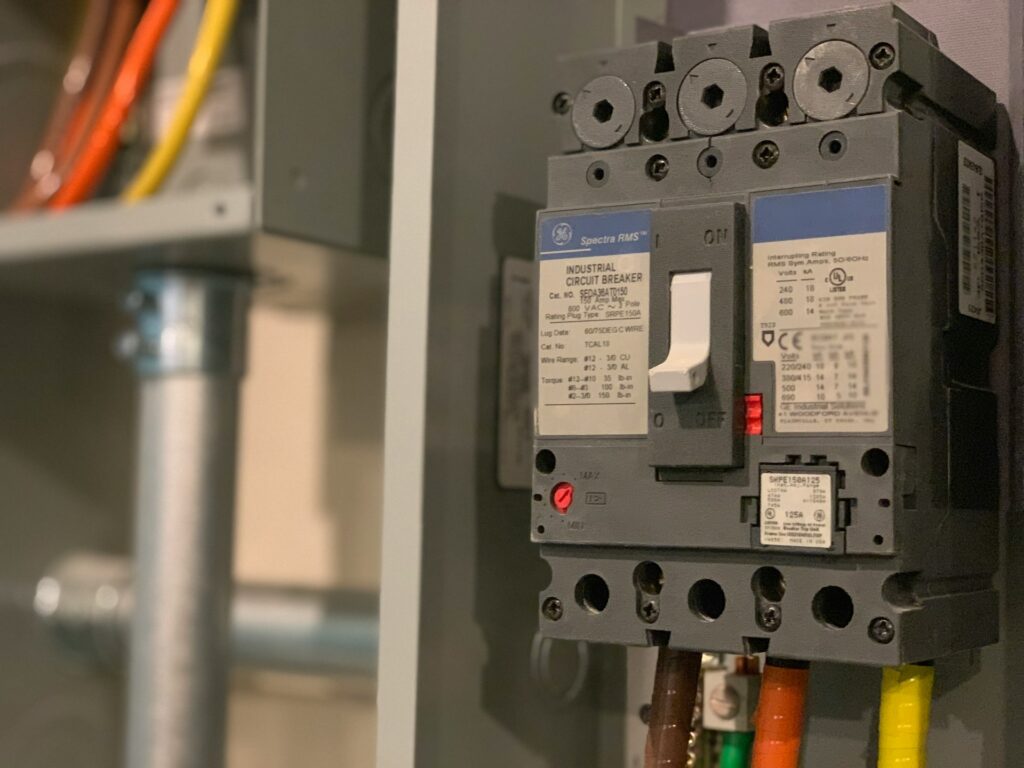If your AC circuit breaker keeps tripping during the peak of summer in Wesley Chapel, it is more than a minor frustration. It is a clear warning sign that something is not right with your cooling system. AC units need continuous electrical power to operate properly. When the breaker keeps shutting things down, it is your home’s way of protecting the system from a larger electrical issue. While it might seem like a quick reset solves the problem, repeated tripping should not be ignored.
Minor electrical issues in your AC system can lead to serious and costly problems if not addressed. Whether it is worn-out wiring, restricted airflow, or a failing compressor, these issues can push your system to work overtime. That additional strain is one of the leading reasons a breaker keeps shutting off, leaving your home hot and uncomfortable. Finding the root of the problem early helps prevent major repairs and keeps your AC operating reliably during the Wesley Chapel summer.
Understanding Why Your AC Circuit Breaker Keeps Tripping
Before solving the problem, it helps to know why the AC breaker keeps tripping. A tripping breaker typically points to issues within the electrical load or internal components of the AC unit. Some causes can be resolved quickly, but others indicate significant system damage or inefficiency.
Here are the most common causes behind a tripping AC breaker:
– Dirty air filter: A clogged filter restricts airflow, forcing the AC unit to use more power. That added strain can result in overheating and tripped breakers.
– Frozen evaporator coil: Low airflow or low refrigerant levels can freeze the coil. Operating in this condition requires more electricity, which can trip the breaker.
– Faulty capacitor or motor: The capacitor and blower motor help control energy flow. If either fails, energy spikes may occur, causing the breaker to shut down the system.
– Short circuit or loose wiring: Electrical damage in the form of shorts or loose wires makes the system unsafe. The breaker shuts off power as a protective measure.
– Overloaded circuit: In some cases, the actual issue is the electrical circuit being shared with multiple heavy-load devices. The excess demand forces the breaker to trip.
If your breaker trips more than once or twice, it is time to stop resetting it and start identifying the issue. Continuously flipping the breaker can put even more stress on your AC system, potentially leading to major malfunctions. Breaker trips are not random—they are built-in safety responses that signal something needs to be corrected.
Troubleshooting Steps Homeowners Can Take
You might be tempted to reset the circuit breaker and continue on with your day. Though resetting once or twice is normally safe, repeated resets are not a long-term solution. There are a few simple and safe troubleshooting actions homeowners can try before calling a technician.
Here are some steps to safely troubleshoot the issue:
1. Turn off the AC before resetting the breaker.
This minimizes the power load during startup and reduces the chance of another immediate trip.
2. Inspect the air filter.
Check if the filter is clogged. A clean filter allows better airflow, reducing strain on the system.
3. Look for signs of freezing.
Check the evaporator coil and refrigerant lines. Ice buildup usually indicates poor airflow or refrigerant problems. Turn off the unit and allow it to thaw before restarting.
4. Clear the area around the outdoor unit.
Debris, tall plants, or grass around the unit can block exhaust airflow, causing the system to overheat and trip the breaker.
5. Check your thermostat settings.
Setting the temperature too low in extreme heat makes the AC run harder and longer, leading to electrical overload.
While these steps are generally safe, never attempt to handle or open electrical components. If you notice any burning smells, buzzing sounds, or visible wire damage, keep the unit off and do not reset the breaker. This signals a more serious electrical issue that requires a professional technician.
How Our Professionals Can Help
When a tripping breaker becomes a regular occurrence, basic troubleshooting probably won’t be enough. If your system continues to shut down after resets, it’s a sign that experienced help is needed. Our professionals are trained to perform thorough inspections that detect the root cause of electrical problems.
Our technicians check every part of the unit, including electrical panels, motors, capacitors, and wiring. They test individual components using proper diagnostic tools to determine what is causing the excessive energy demand. Not every issue is immediately visible. For example, low refrigerant might not seem serious but can result in coil freezing, heat buildup, and tripped breakers.
Once they identify the problem, our technicians complete repairs that follow current safety and electrical code standards. Whether it’s damaged wires, a faulty capacitor, blocked coils, or improper airflow, we focus on restoring normal system operation. They also make changes that help prevent the same issue from recurring. This is especially useful during peak summer in Wesley Chapel, when AC units work the hardest.
Our technicians can also create a customized maintenance schedule based on your system’s condition. This includes inspecting refrigerant levels, verifying that start-up components are functioning properly, cleaning vital parts, and confirming full electrical safety.
Keeping Your AC Reliable All Summer
Circuit breaker issues usually develop in AC systems that have not received regular upkeep. Over time, components wear down, refrigerant levels drop, and airflow decreases. When those problems are ignored, they cause increased electrical load and stress—conditions that result in the circuit breaker shutting off to avoid danger.
Instead of waiting for an emergency during a hot Wesley Chapel afternoon, the better approach is to keep ahead of problems with professional inspections. Annual maintenance helps your system stay balanced, ensuring that electrical and airflow levels are where they need to be. That means less chance of surprise shutdowns and more comfort indoors.
For example, one Wesley Chapel homeowner experienced frequent breaker trips and thought it was due to exterior power surges. After a full system check, our technician discovered that the outdoor condensing coil was covered in a thick layer of grass and dirt. This blockage caused the unit to retain heat and trip the breaker. After cleaning and restoring airflow, the problem disappeared, preventing more visits for emergency repairs.
In a hot climate, AC units run long hours every day. Proactively identifying issues like restricted airflow, overheating, or electrical failures makes a major difference. When you stay on top of maintenance and get problems checked early, you avoid bigger breakdowns, costly service calls, and uncomfortable indoor temperatures.
AC maintenance in Wesley Chapel is essential to protecting both your home and your equipment. By recognizing the early signs of a tripping breaker and acting on them, you help your system last longer and perform better every season.
Keep your AC running smoothly and avoid unexpected breaker trips by scheduling regular upkeep with Franks Air Conditioning & Heating. To help extend your unit’s lifespan and maintain reliable cooling throughout the summer, learn more about AC maintenance in Wesley Chapel. For a quick estimate or to book a service visit, please contact us today.



